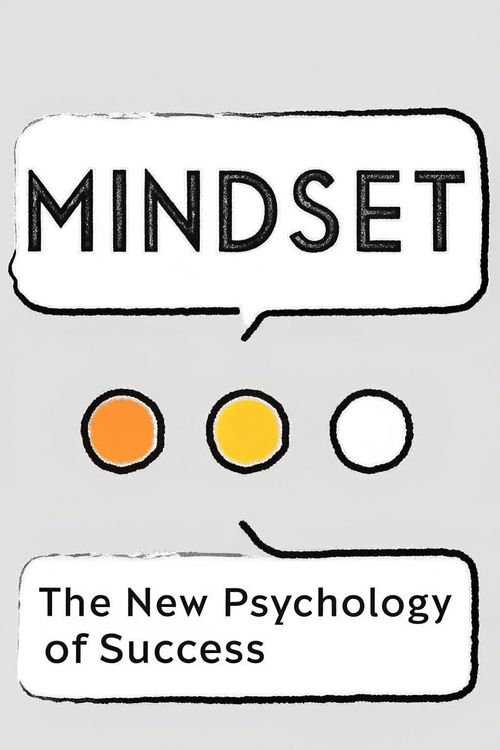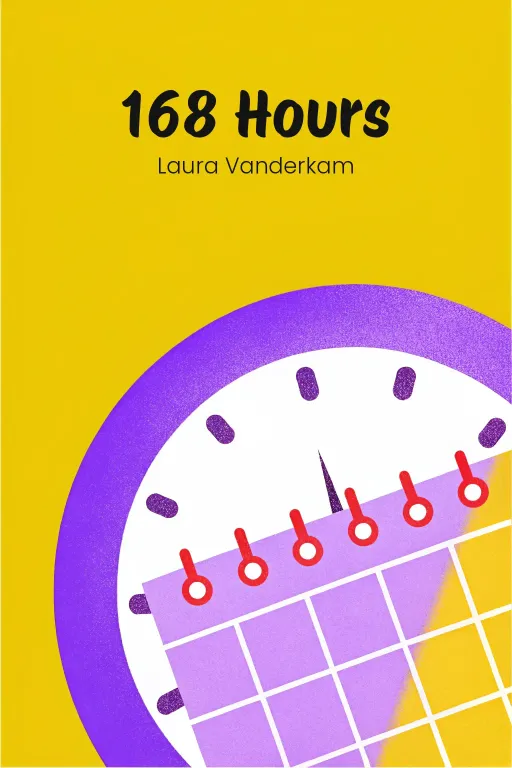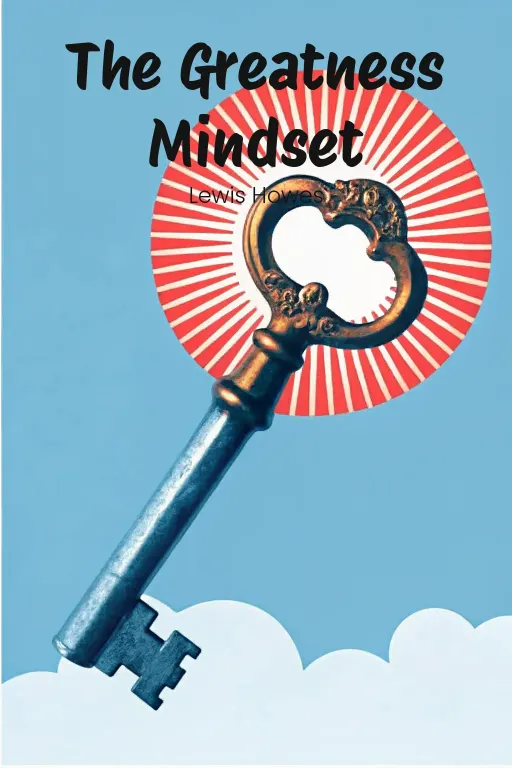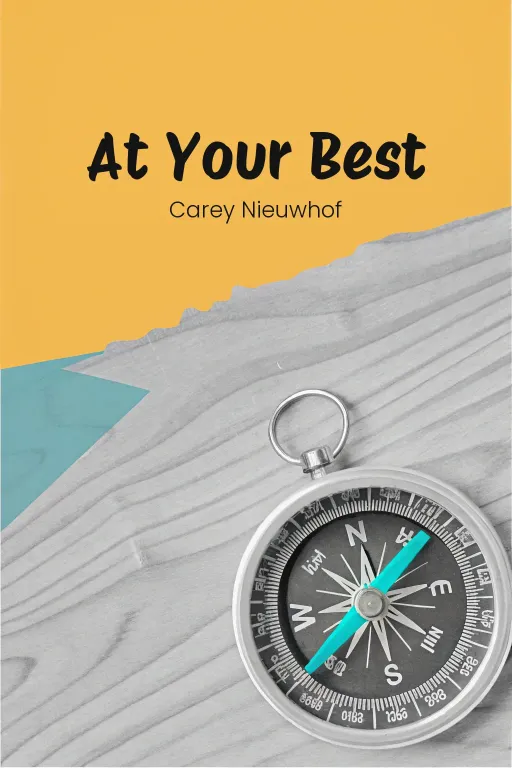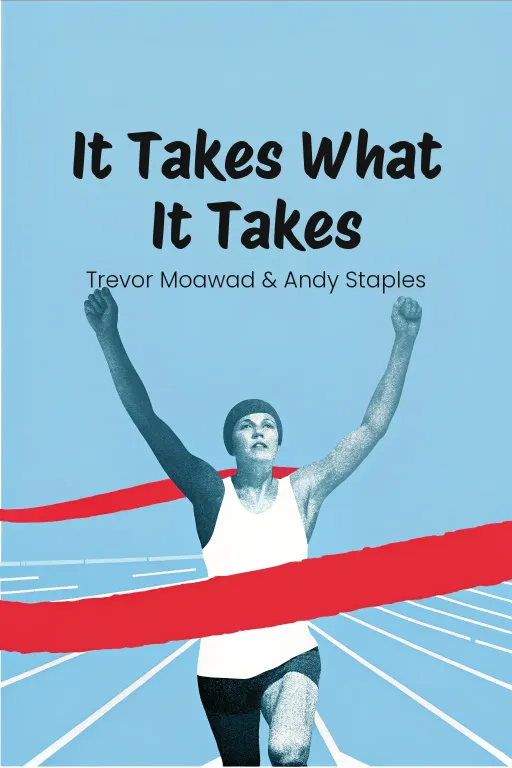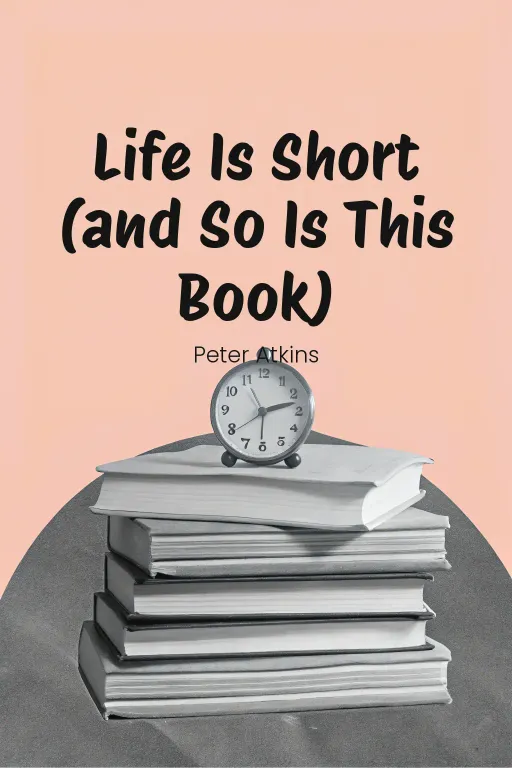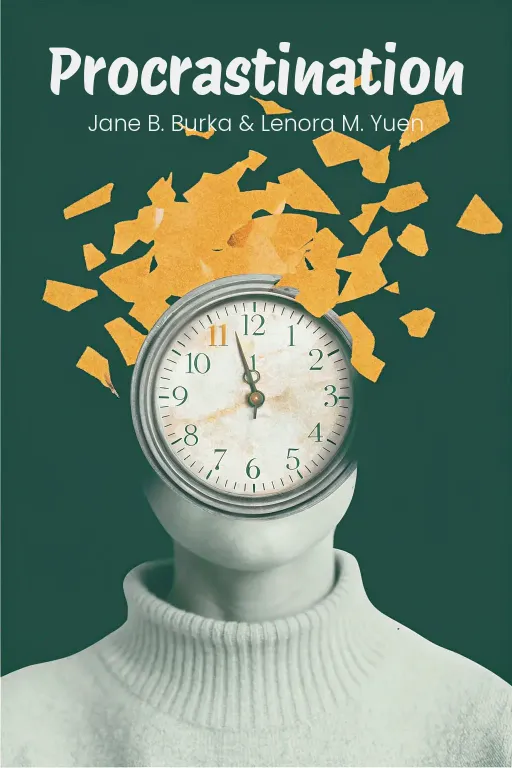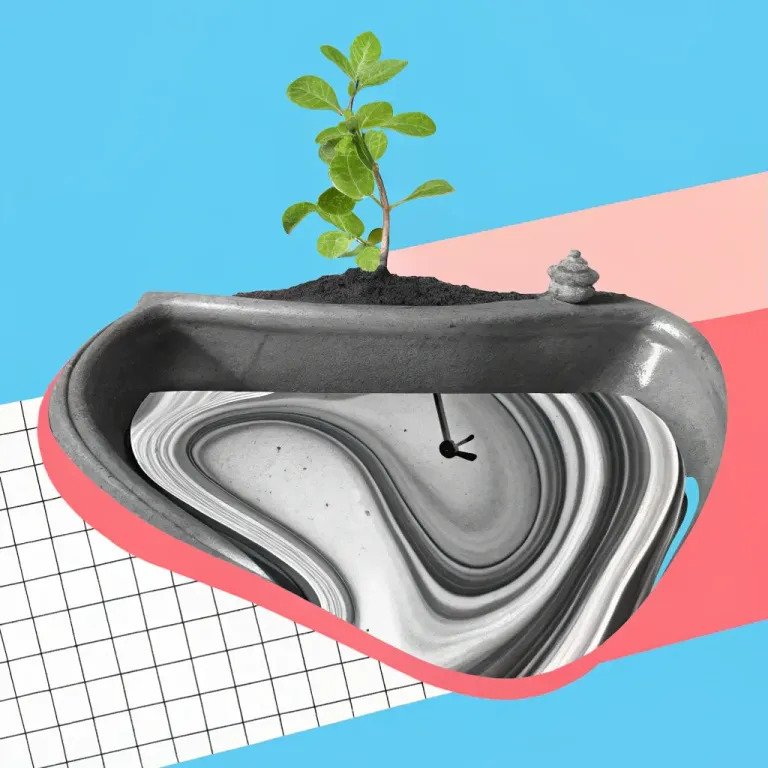
Crush Procrastination: Easier Than You Think
Podcast by Beta You with Alex and Michelle
A Strategic Program for Overcoming Procrastination and Enjoying Guilt-Free Play
Crush Procrastination: Easier Than You Think
Part 1
Alex: Hey everyone, welcome back! Today we’re diving into a topic we all know and, well, probably put off dealing with… procrastination! I mean, who hasn’t spent an afternoon alphabetizing their spice rack instead of, you know, working? Michelle: Guilty as charged. It’s practically my warm-up routine before any project. But seriously, Alex, why do we do this to ourselves? Is it just pure, unadulterated laziness? Alex: Actually, it’s way more complex than that, Michelle. Neil Fiore, in his book "The Now Habit," makes a really compelling argument: procrastination isn’t some inherent flaw in our character. It’s actually a coping mechanism. Think about it—fear of failure, fear of success, even fear of what people will think after we complete something. These anxieties can trap us in a cycle of avoidance. Michelle: Wait a minute, are you telling me that my deep dive into obscure YouTube videos is actually a sign of… emotional depth? Suddenly, this book is sounding a lot more insightful. Alex: Precisely! And the best part is, Fiore doesn’t just point fingers. He offers concrete solutions. He has these strategies, like the Unschedule and guilt-free play, that are designed to take the pressure off tasks and make productivity feel, well, achievable. Even better, he helps us reframe how we see failure, turning it into a lesson instead of some catastrophic event. Michelle: Okay, "strategies," "fear," "failure"—sounds like we’re about to have a full-blown productivity intervention here. So what exactly are we unpacking today? Alex: We're breaking down three core concepts: First, the hidden psychology of procrastination—really understanding why it's not just simple laziness. Second, we'll explore practical tools like guilt-free play and the Unschedule, focusing on how to work smarter, not just harder. And finally, we'll look at cultivating a growth mindset, so we can transform setbacks into opportunities for growth. Michelle: Alright, I'm intrigued. Worst case scenario? I’ll be productively procrastinating by listening to this. Best case? Maybe, just maybe, I’ll stop alphabetizing my sock drawer and start… well, who knows? Let's do this.
Understanding Procrastination as a Psychological Mechanism
Part 2
Alex: Okay, Michelle, let's get into this first idea – understanding procrastination as a psychological thing, you know? It's not just being lazy or weak-willed; it's actually your brain trying to protect you from something. Michelle: So, wait, you're saying every time I put off doing something, I'm basically a superhero dodging mental bullets? Like, procrastination is my superpower against… what exactly? Anxiety? Alex: Pretty much! We do it to avoid the emotional stuff that comes with certain tasks. Fiore says it could be fearing you'll fail, worrying about what others think, or even just a way of rebelling. Elaine's story in the book is a great example of this. Michelle: Elaine, the pianist? Remind me about her. Alex: Right, so she was a really talented pianist, but she grew up in a house where everything had to be perfect. Her parents made her feel like mistakes were a disaster. That fear got so strong that she'd just avoid practicing altogether. Procrastination became her way of avoiding the stress of being judged. Michelle: So, she was thinking, "Better not to try than to risk messing up." That's... sadly familiar. And kind of messed up, actually. She wanted to be perfect so much that she didn't even try, which then made her feel even less prepared, right? Alex: Exactly! That's how procrastination becomes this terrible cycle. You feel good for a little while when you avoid the task, but it ends up making you more stressed out in the end. Elaine felt good in the moment, but every performance became more scary because she didn't practice enough to feel confident. Michelle: So, procrastination is like... putting a tiny sticker on a huge problem? It feels okay for a minute, but eventually, it just makes things worse. Alex: Good analogy. And this little moment of relief often costs you your self-esteem in the long run. Fiore talks about how guilt and avoidance start building up, and then you're stuck in a loop of being super hard on yourself. Michelle: Right, because now you're not just behind on whatever you're supposed to be doing, but you're also telling yourself you're a failure, a screw-up, and everything in between. It's like, "Oh, no one texted me back; everyone hates me now" kind of spiral. Alex: Exactly. And the guilt becomes another reason to avoid things, which makes you procrastinate even more. Fiore mentions that we often pick up these patterns early on. Like, when we're kids, things happen that let us off the hook, like snow days that cancel exams. Michelle: Oh, you mean those times when life just magically saves you? Yeah, I remember feeling like, "Oh, cool, I don't have to deal with this today." But that sticks with you? Alex: It can. If experiences teach you that avoiding work brings relief, you start unconsciously putting things off, especially when they feel overwhelming. But that's dangerous when you're an adult, and snowstorms don't cancel your deadlines. Michelle: Right, instead you have deadlines that never go away and bosses who definitely don't give out snow days. Got it. Alex: That brings us to Larry's story, which highlights another kind of procrastination – rebelling against authority. Michelle: Oh, Larry, the guy who made procrastination a personal protest at work, right? Alex: Exactly. Larry worked as a production supervisor. He felt his work was not valued, that he was being ignored for promotions. So he started ignoring project deadlines, he was delaying the tasks assigned by his manager. To Larry, it wasn't all laziness. It reflected his frustration and was a way to push back to the system. Michelle: So, procrastination was his way of "quiet quitting" before it was a thing. I get that, you know? A little rebellion can feel good, like you're taking control, especially when work feels suffocating. But I'm guessing it didn't end well. Alex: Definitely not. His procrastination might have felt good in the moment, but it hurt his career in the long term. Missing deadlines made him look unreliable, which meant less opportunities came his way. Instead of solving his frustration, it just made him feel more inadequate. Michelle: And there it is – the loop strikes again. So, procrastination can either be a shield against your fears, like with Elaine, or it can be a way of sticking it to the man, like with Larry. Either way, it's like borrowing trouble from your future self. Alex: Exactly. Fiore points out that procrastination isn't about effort; it's about avoiding discomfort. Once we see it as an emotional reaction instead of a flaw, we can start working to break it. Michelle: Okay, so what's the actual solution? It's easy to say, "It's emotional," but how do you stop yourself from avoiding the thing? Alex: Fiore's first fix is self-awareness. You have to figure out exactly what fear is making you procrastinate. Are you worried about failing? About being judged? Maybe you're like that student who keeps rewriting their paper a million times because anything less than perfection feels like garbage. Michelle: Ah, the "if it's not perfect, it's worthless" mentality. Been there, done that. Alex: Right. Once you know what your fear is – like fear of imperfection – you can start changing the way you think about it. Like, instead of obsessing over getting it perfect, focus on progress and being kind to yourself. Remember, starting is more important than getting it perfect on the first try. Michelle: Kind of like jumping into cold water – just do it, even if it's uncomfortable, instead of standing there forever, thinking about how cold it's going to be. Makes sense. Alex: Exactly! For people like Larry, breaking the cycle might mean actually dealing with what's frustrating them at work – talking about fairness, instead of just letting it build up. Michelle: So, whether it's dealing with perfectionism or work problems, the key seems to be honesty – with yourself and with others. Alex: Exactly. When we face our fears and take that first step, procrastination loses its grip. It's about going from avoiding to being aware and, eventually, to taking action.
Practical Strategies for Overcoming Procrastination
Part 3
Alex: So, with that groundwork laid, let's dive into some actionable strategies for breaking the procrastination cycle. Think of these as practical tools, building on those psychological insights we discussed, giving you concrete steps to transform procrastination into, well, productivity. Michelle: Finally, solutions! Look, understanding why we procrastinate is great and all, but I've personally found myself “procrastinating” on figuring out how to actually fix it. So, Alex, where do we even begin? Alex: A great starting point is one of Fiore's most transformative tools: the Unschedule. Michelle: The Unschedule? Okay, that sounds like a productivity paradox. Scheduling by... not scheduling? You're gonna have to unpack that one for me. Alex: It’s actually pretty ingenious. Instead of leading with a daunting to-do list, you completely flip traditional scheduling on its head. You start with play. Leisure activities, hobbies, even just breaks, are the first things you block out on your calendar. They get top priority. Michelle: Wait a minute. Are you telling me that lounging on my couch with a mountain of popcorn should be step one? That feels… counterintuitive. Alex: It might sound indulgent, I get it. But think about it this way: when you prioritize truly guilt-free leisure, you're signaling to your brain that your day isn't just about work, it has balance. And that in itself relieves a lot of the anxiety associated with big tasks. Michelle: Hmm. So, instead of fixating on looming deadlines, I can tell myself, "Hey, there's a bike ride waiting for me at 4 PM. Let's get this done so I can actually enjoy it"? Alex: Exactly! Not only that, but you break your work into smaller, manageable chunks–usually around 30 minutes. Then you mark those completed bursts on your calendar, not as pressures to fulfill, but as achievements to celebrate! Michelle: Okay, that's actually pretty clever. You're essentially rewiring your brain to see work not as a chore, but as something that complements all the “fun stuff” that you've already scheduled into your life. Alex: Precisely! Remember Larry, the production supervisor we talked about? He was stuck in that resentment cycle, work felt like an uphill battle against constant frustration. But once he started prioritizing activities like family dinners and biking—and putting them on the calendar first—he found he could approach his job with a lot less resistance. Michelle: So, it's like Larry stopped fighting against work, and just figured out a way to work around it instead. Smart. Makes me wonder what my own Unschedule would even look like. Alex: That’s the beauty of it—it’s totally customizable. When you give yourself dedicated time to recharge, work stops feeling like the enemy. Michelle: Let me guess, guilt-free play ties into this whole thing, right? Because this all sounds like a very elaborate justification for slacking off. Alex: Not slacking off—replenishing. But you’re spot on, guilt-free play is the next essential strategy. Michelle: Alright, so what makes play "guilt-free?" Because the second I fire up a video game, I can already hear my inner critic chiming in with, "You should be working right now!" Alex: And that's exactly the point Fiore is getting at. Guilt-free play has to be intentional. It’s not about avoidance, it's about consciously choosing activities that genuinely relax and recharge you. Like Elaine, the perfectionist pianist: she found that spending time gardening actually freed her mind. And she'd come back to her music with more energy and creativity. Michelle: Okay, so when you lean into play, you're not just running from work, you're regrouping. But let's be honest, part of the guilt is because you probably should be doing the “important stuff”, right? Alex: That's where reframing comes in: play isn't wasting time, it’s preparing you for better work. It actually helps reduce anxiety and keeps burnout at bay. Fiore is firm on this: restorative play makes you more effective when you return to your tasks. Michelle: Alright, so play is productive, leisure is essential. I'm… cautiously intrigued. What's next? Alex: Fiore also introduces the pull method, which changes how you motivate yourself. Michelle: The pull method? I'm picturing some kind of cartoon tug-of-war with my task list, except this time I have all the heavy hitters on my team. Alex: Similar idea! It’s rethinking effort entirely. Most productivity relies on what he calls the "push method," where fear or obligation forces you to act. Michelle: Oh yeah, the classic productivity guilt trip. "If you don't finish these 20 tasks for me, your entire life is going to fall apart!" Motivating? Sure. Fun? Not so much. Alex: Precisely! And the push method breeds resistance. The pull method flips that around—instead of feeling pressured, you align your tasks with things that intrinsically motivate you. You create genuine excitement for what you're doing. Michelle: So, like when Jeff, the professor-turned-actor in the book, did, right? What was his story? Alex: Exactly. Jeff was drowning in academic stress. Writing papers under pressure drained him, everything felt like a chore. Then he joined a community theater group—something he genuinely enjoyed. Michelle: Okay, wait a minute. He added acting to his already packed schedule? Wasn't this just adding another layer of procrastination? Alex: Well, at first glance, you might assume that, but the play rehearsals actually recharged him emotionally. The positive energy he got from acting carried over to his work. So instead of dreading his papers, he found himself more focused during shorter, high-energy writing sessions. Michelle: Huh. So… enjoying something completely unrelated to work actually made his work better? Alex: That's right. All of a sudden, work became a choice, not a punishment. The real goal is cultivating balance—where work and leisure actually complement each other. Michelle: And, obviously, we can’t forget the incremental progress hack—celebrating the small wins, right? Alex: Absolutely! Incremental progress is pivotal. Clare’s story really illustrates this. She was so overwhelmed that even the simplest tasks felt insurmountable. But by breaking them into short sessions—just 30 minutes at a time—and rewarding herself after each effort, she slowly chipped away at her anxiety. Michelle: And those rewards were intentional, right? They weren't like, "Let me do 15 minutes and then binge three hours of reality TV," were they? Alex: Precisely—small, meaningful treats: a walk, reading a chapter from a favorite book. The key is that every completed step builds momentum, restructuring how you approach tasks altogether. Michelle: So, instead of the all-or-nothing mindset, you reframe progress as… well, progress. Alex: Exactly. Bit by bit, you build confidence and minimize the feeling of being overwhelmed. Fiore’s strategies all emphasize this balance between action, emotion, and self-compassion. Michelle: Okay, I'll admit it. It's all starting to click. Leisure, reframing motivation, small steps…it's not just fluff, it's a structural tool for tackling procrastination head-on. Alex: And the really amazing thing is, these practices aren’t just about getting work done, they’re about building a sustainable, fulfilling relationship with productivity. It’s not about surviving the workload, it’s about thriving within it.
Cultivating a Productive Mindset and Lifestyle
Part 4
Alex: Absolutely. Beyond just the daily grind, adopting these strategies “really” changes how we tackle our goals and grow as people. This last piece kind of pulls together the mental and practical sides, giving us a well-rounded way to keep growing: developing a positive mindset and a sustainable lifestyle. Michelle: "Holistic," huh? So, we're talking about the broader view now—less about crossing off tasks, more about changing your whole relationship with getting things done. Sounds... ambitious, doesn't it? Alex: It is, but that's exactly why it's so powerful. Dr. Fiore doesn't just tell us to get our calendars in order; he “really” digs into how we think, work, and live. It's all about building long-term habits that let us balance personal happiness with being productive. And the secret sauce is developing a mindset that emphasizes self-compassion, resilience, and being adaptable. Michelle: Self-compassion? So, does that mean my inner critic gets a vacation? I get the idea, but isn't that just telling yourself what you want to hear? Alex: Not “really”. Self-compassion isn't about making excuses. It's about practicing kindness when things go wrong, which is something a lot of us “really” struggle with. Take Clare, for instance. She's a good example Fiore uses. Her inner critic was constantly putting her down with harsh thoughts like, "I'm so disorganized," or, "I have to get this perfect," which just made her freeze up. Michelle: So, Clare had a tiny dictator in her head, scolding her every time she tried to get something done? What happened when she finally told that dictator to take a hike? Alex: She didn't exactly kick it out—she replaced those negative thoughts with encouraging ones. Instead of saying, "I have to do this perfectly," she changed it to, "I'm choosing to start this task." It took the pressure off and made her feel more in control. She focused on small steps and celebrated even the little wins, breaking free from that cycle of procrastination and guilt. Michelle: Trading out the harsh drill sergeant for a supportive coach. Makes sense. I can see how that encourages progress instead of demanding perfection. Alex: Exactly. Self-compassion makes productivity come from self-worth, not self-punishment. And speaking of Clare, Fiore points out that when we change our mindset, we make room for resilience. That brings me to perfectionism—another major roadblock. Michelle: Oh, boy, here we go. I can almost hear the perfectionists protesting, "It's not my fault I have high standards!" So, what's the “real” story here? Alex: Well, perfectionism isn't “really” about having high standards. It's often fear disguised as wanting things to be great. Elaine is a good example. Remember her story? She avoided practicing the piano because she was terrified of making mistakes. Michelle: Ah, the pianist who'd rather skip practice than hit a wrong note. So, perfectionism stopped her before she even started—almost the opposite of making progress, isn't it? Alex: Exactly. But things changed when she started seeing mistakes as part of learning. She learned to separate her self-worth from how she performed and accepted that imperfection is just a natural step towards getting better. Michelle: Right, but “embracing imperfection” is easier said than done, isn't it? How did she actually convince herself that it was okay to mess up? Alex: By seeing mistakes as learning opportunities, not failures. Fiore says this is a “really” important mental shift. For Elaine, the key was viewing her piano practice as experiments, not auditions where she had to be perfect. That gave her permission to keep showing up, make mistakes, and improve in a way that felt freeing, not punishing. Michelle: So, mistakes aren’t the enemy – they’re mile markers. Like, hey, you’ve hit this point; keep going. I guess when you think of progress that way, it’s harder to get stuck. Alex: That’s precisely the idea. When you shift from "all or nothing" to "growth-focused" thinking, you can move forward a little bit at a time. Fiore builds on this with the concept of resilience—planning for setbacks and learning how to bounce back from them. Michelle: Planning for setbacks? Isn't that like deliberately putting "oops" on the calendar? Sounds a bit strange, doesn't it? Alex: Not at all! Think of setbacks as those small speed bumps. Instead of pretending like they don't exist, you come up with ways to deal with them when they pop up. A classic example is that student who's getting ready for an exam. Michelle: The one who nearly collapsed from cramming, right? And then turned it all around by scheduling breaks? Alex: Exactly! Instead of making themselves study constantly, they factored in breaks—planned, restorative moments, like 15-minute walks. Those breaks helped them clear their head, lower stress, and focus better when they were studying. Michelle: So, instead of sprinting until they collapsed, they trained for a marathon. Short, sustainable bursts of effort, followed by recovery time. Alex: Exactly. Being resilient means accepting that setbacks will happen—they're part of being productive—and seeing them as chances to fine-tune things. It's “really” about being mentally flexible enough to adapt instead of trying to force your way through every obstacle. Michelle: Got it. Resilience, check. But what about the big motivation killer—feeling overwhelmed? Because honestly, even small setbacks can pile up when you're staring at a mountain of things to do. Alex: That's where setting achievable goals and celebrating every little bit of progress “really” helps. It's about climbing that mountain step by step, instead of trying to leap to the top all at once. Jacob's story “really” makes this point. Michelle: Oh, yes, Jacob—the dad who was switching careers and was completely swamped. When did things start to change for him? Alex: He made a “real” breakthrough when he divided his long-term certification goal into smaller, more manageable steps. Instead of obsessing over finishing the whole program, he created short-term milestones: reading five pages each night, finishing one assignment per week. This made the whole thing feel less daunting, and celebrating each achievement kept him engaged. Michelle: It’s like turning your overwhelming to-do list into bite-sized appetizers instead of an all-you-can-eat buffet. Easier to digest, and you don’t feel stuffed. Alex: I love that comparison! Absolutely, it's about making your goal feel doable. Each little success boosts your confidence and shows you you’re heading the right way. Michelle: Makes sense. But, Alex, we've talked a lot about work—what about balance? Where does play fit into all this? Alex: Play is actually one of the core pieces of living this kind of productive lifestyle. When you add guilt-free play into the mix, you avoid burnout and boost your creativity. Jeff, remember the overworked professor from earlier? He's a great example of this. Michelle: Ah, yes, Jeff—the guy who discovered that theater was just the thing to recharge his academic brain. Alex: By dedicating time to something he “really” enjoyed—acting—Jeff regained a sense of joy and balance. That energy then spilled over into his work. Suddenly, tasks that he used to dread felt easier and more engaging. Michelle: Hmm. So, the answer isn't just balancing work with play—it's about finding something meaningful that brings you joy and carries you through the daily grind. Alex: Exactly. Fiore emphasizes that guilt-free downtime isn't just something extra—it's actually preparation. It improves your emotional well-being and your productivity, creating a system where your work and leisure time help each other. Michelle: Well, Alex. You know I love a good "aha" moment, and this is definitely one of them: productivity isn't just about what you do, it’s about being balanced, intentional, and well, human.
Conclusion
Part 5
Alex: So, to sum up, procrastination really isn't about laziness, is it? It's more of a psychological coping mechanism, often stemming from fear —whether it's fear of failure, rejection, perfectionism, or even issues with authority. Dr. Fiore's method reframes procrastination as something we can actually understand and tackle, rather than just viewing it as some inherent flaw we're stuck with. Michelle: Exactly, and his solutions are quite different from what you usually hear about just grinding harder. The Unschedule, for instance, it encourages you to prioritize leisure. Guilt-free breaks to recharge, focusing on tiny wins to avoid overwhelm. So it’s about working smarter, kinder, and not just harder, right? Alex: Precisely! It's about shifting your entire mindset. Embrace progress over striving for perfect, see mistakes as learning experiences, and remember setbacks are just temporary delays, not the end of the road. Michelle: It’s actually quite reassuring, isn't it? You don't have to fight procrastination head-on with pure willpower; you can outmaneuver it with better habits and a bit of self-compassion. Alex: Definitely. So, this week, try one of these strategies. Maybe it’s creating an Unschedule, or planning some guilt-free fun, or breaking down a big task into easier steps. Start small, be gentle with yourself, and see what happens. Michelle: Yeah, and who knows? Maybe you will get rid of procrastination completely Or, at the very least, turn it into a roommate who pays some rent instead of a landlord! Alex: Nicely said, Michelle. Well, that’s all for today. Thanks everyone for joining us on this journey to outsmart procrastination!

